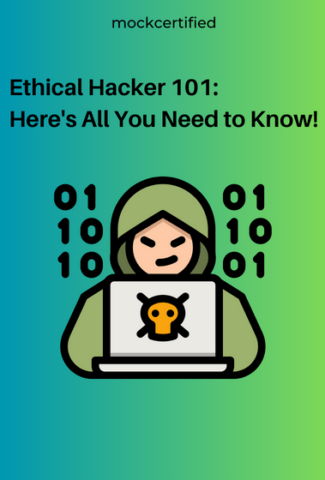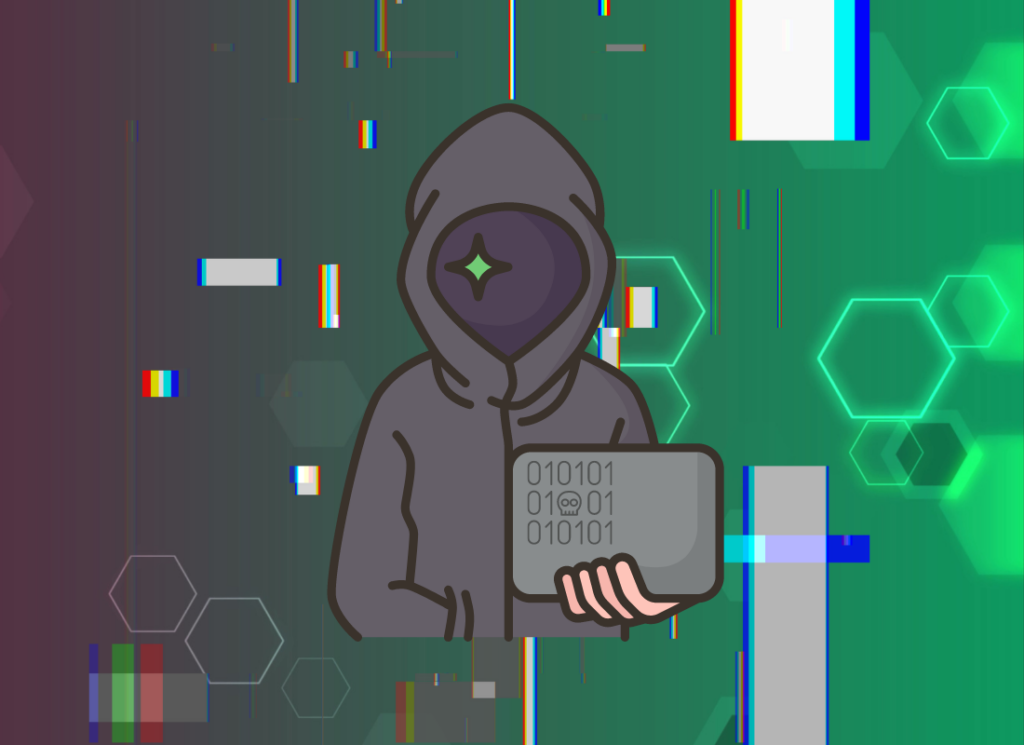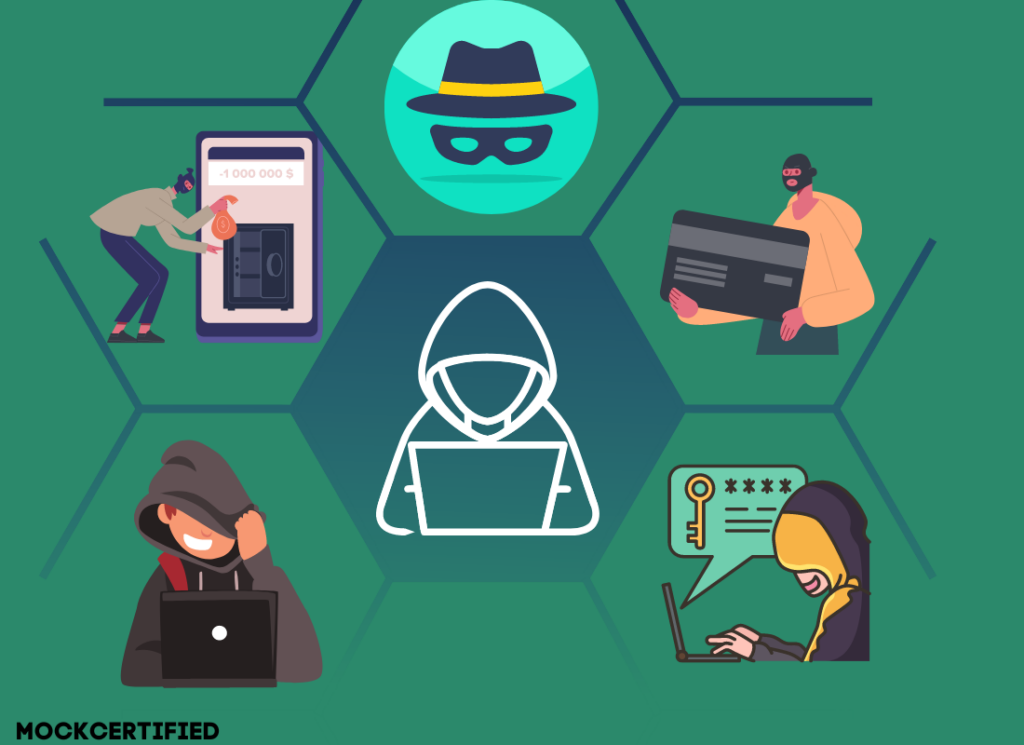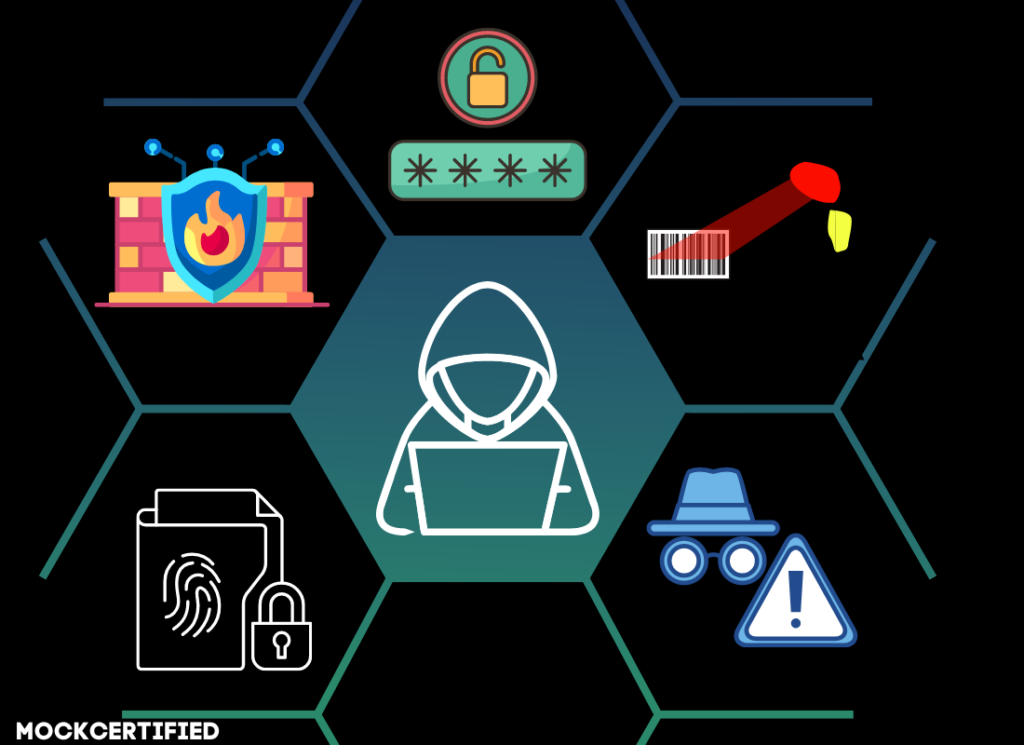
Hacking doesn’t always have to be for bad reasons! There are many ways one can put their hacking skills to good use.
The technology is always advancing at an exponential rate, so does the need for robust cybersecurity safeguards to safeguard sensitive data. Ethical hacking has evolved as an effective strategy for defending networks and computer systems against prospective threats.
This blog will provide readers an understanding of what ethical hacking is and how it is different from black hat, what skills are necessary to become an ethical hacker, how to get there, the tools and tactics used by ethical hackers, best practices, and the future of ethical hacking.
Table of Contents
Introduction

Definition of Ethical Hacking
The technique of breaking into computer systems, networks, or apps with the owner’s permission in order to identify faults and potential security risks is called ethical hacking which is also known as penetration testing or white hat hacking. This type of hacking is legal.
Importance of Ethical Hacking
Ethical hacking has become a critical component of cybersecurity as there is an increase in cyberattacks and data breaches. Ethical hackers may prevent possible security breaches and keep sensitive information out of the wrong hands by proactively discovering holes and vulnerabilities.
Understanding the Basic Principles of Ethical Hacking

What is Hacking?
The unauthorised effort to obtain access to a computer system or network that can be used for both legitimate and illicit objectives is referred to as hacking.
Types of Hacking
Hacking can be of three types and they are as follows:
White hat, black hat, and grey hat.
White hat hacking, or ethical hacking, is done with the owner’s permission to identify and fix potential security threats.
Black hat hacking is done for malicious purposes, such as stealing sensitive information or disrupting computer systems.
Grey hat hacking is done without permission but with no malicious intent.
Ethical Hacking vs. Illegal Hacking
Ethical hacking is legal and done with the owner’s permission. On the other hand, Illegal hacking is done without the owner’s permission and can result in criminal charges.
Skills Required to Become an Ethical Hacker
Technical Skills
A solid background in computer science and information technology is required to become an ethical hacker. Knowledge of operating systems, programming languages, networking, database administration, and online applications are among the fundamental technical abilities necessary. It is also critical to comprehend cybersecurity fundamentals such as cryptography, threat modelling, and risk assessment.
Non-Technical Skills
An ethical hacker should have non-technical skills such as critical thinking, problem-solving, and communication abilities in addition to technological talents. A strong ethical hacker should be able to analyse complicated systems, find flaws, and build effective security solutions. Strong communication skills are also required for discussing possible security threats and remedies to stakeholders effectively.
Steps to Become an Ethical Hacker
Formal Education
A solid background in computer science and information technology is required to become an ethical hacker. Several institutions have bachelor’s and master’s degree courses in cybersecurity and information technology. Formal education in computer science, cybersecurity, or a related profession is an excellent place to begin. Such institutions provide students the technical skills and knowledge necessary to become a successful ethical hacker.
Certifications
Certifications are an excellent approach to demonstrate your ethical hacking knowledge and talents. The most prominent credentials for ethical hackers are The Certified Ethical Hacker (CEH), Certified Information Systems Security Professional (CISSP), and Offensive Security Certified Professional (OSCP).
Building a Strong Portfolio
Building a great portfolio is critical for displaying your ethical hacking talents and understanding. Participating in bug bounty programmes, donating to open-source projects, or doing your own penetration testing can give a boost to your portforlio. A strong portfolio can help you stand out from the competition when applying for ethical hacking jobs.
Finding Job Opportunities
Ethical hackers need be limited to one sector only and can find employment in a variety of areas, including banking, healthcare, and government. Penetration tester, security analyst, and security consultant are some of the most prevalent job titles for ethical hackers.
Tools and Techniques Used by Ethical Hackers

Vulnerability Scanners
Vulnerability scanners are tools for detecting possible security flaws in computer systems, networks, or applications. They operate by scanning the system for known flaws and vulnerabilities.
Password Cracking Tools
Password cracking software is used to crack or guess passwords used to protect computer systems, networks, or applications. These tools may be used to validate password regulations and discover weak passwords.
Firewall Testing
Firewall testing involves attempting to penetrate a network or system through its firewall. This is done to identify potential security vulnerabilities in the firewall and ensure that it is configured properly and is safely secured.
Social Engineering Techniques
Social engineering techniques involve manipulating individuals to gain access to sensitive information or computer systems. Ethical hackers may use these techniques to test the effectiveness of security policies and procedures.
Best Practices for Ethical Hacking
Law and Ethics
Ethical hackers must abide by the law and ethical principles when conducting penetration testing. This includes obtaining proper authorization from the system owner, not causing harm to the system or network, and respecting the privacy and confidentiality of sensitive information.
Proper Authorization
Ethical hackers must obtain proper authorization before conducting penetration testing. This includes obtaining written permission from the system owner and ensuring that all testing is done within the scope of the authorization.
Confidentiality and Privacy
Ethical hackers must respect the confidentiality and privacy of sensitive information that they may come across during penetration testing. This includes not sharing sensitive information with unauthorized individuals and properly securing all sensitive information.
Continuous Learning
Ethical hacking is a continually growing discipline, and ethical hackers must constantly study and keep up with the latest techniques and technologies.
This may be accomplished through visiting conferences, taking part in training programmes, and networking with other experts in the sector.
Top 5 Programming Languages for Ethical Hacking
Programming languages play a crucial role in the arsenal of ethical hackers. Here are the top five programming languages widely used in ethical hacking:
- Python: Known for its simplicity and versatility, Python is a popular choice among ethical hackers. Its vast library ecosystem, ease of use, and extensive community support make it ideal for scripting, automation, and developing security tools.
- JavaScript: With the rise of web-based attacks, proficiency in JavaScript is valuable for ethical hackers. JavaScript is essential for web application security testing, understanding client-side vulnerabilities, and identifying security flaws in JavaScript-driven frameworks.
- C/C++: Although considered more complex than other languages, C and C++ are widely used in low-level programming and system security. Ethical hackers utilize these languages for tasks such as developing exploits, analyzing malware, and reverse engineering.
- Ruby: Known for its simplicity and readability, Ruby is a dynamic scripting language that is often used in web application security testing. It provides a range of powerful frameworks, such as Metasploit, which streamline vulnerability scanning and penetration testing processes.
- Bash: Bash scripting is essential for automating tasks, creating custom tools, and performing reconnaissance in ethical hacking. Its command-line interface enables efficient execution of various security-related tasks on both Linux and macOS systems.
These programming languages provide ethical hackers with the flexibility and capabilities needed to identify and exploit vulnerabilities in digital systems.
Phases of Ethical Hacking

Ethical hacking follows a structured approach, encompassing various phases to ensure comprehensive testing and analysis. The typical phases of ethical hacking include:
- Reconnaissance: In this phase, ethical hackers gather information about the target system or organization, employing techniques such as open-source intelligence (OSINT) gathering, network scanning, and social engineering.
- Scanning: Ethical hackers utilize specialized tools to identify open ports, services, and potential vulnerabilities within the target system. Port scanning, vulnerability scanning, and network mapping are common techniques used in this phase.
- Gaining Access: In this phase, ethical hackers attempt to exploit identified vulnerabilities to gain unauthorized access to the target system. Exploitation techniques may involve code injection, privilege escalation, or other tactics depending on the specific vulnerabilities discovered.
- Maintaining Access: Once access is obtained, ethical hackers aim to maintain persistence within the target system, allowing them to further explore and identify potential vulnerabilities. This phase involves techniques such as creating backdoors, establishing remote access, or manipulating system configurations.
- Covering Tracks: Ethical hackers understand the importance of leaving minimal traces of their activities. In this final phase, they remove any evidence of their presence, ensuring that the target organization can rectify vulnerabilities without being aware of the ethical hacking process.
It is crucial to note that ethical hackers follow strict guidelines and obtain proper authorization from the target organization before proceeding with these phases.
Challenges of Ethical Hacking
Ethical hacking comes with its own set of challenges, including:
- Legality and Ethics: Ethical hackers must navigate legal and ethical boundaries carefully. They need to ensure they have proper authorization to conduct security testing and adhere to established guidelines and regulations.
- Evolution of Threats: The cybersecurity landscape is constantly evolving, with new attack techniques and vulnerabilities emerging regularly. Ethical hackers face the challenge of staying updated and acquiring the knowledge and skills required to address these evolving threats effectively.
- Scope Limitations: Ethical hackers often face limitations due to the predefined scope of their engagements. This can restrict their ability to identify vulnerabilities outside the designated scope, potentially leaving certain areas of the system untested.
- Security Awareness: Despite the efforts of ethical hackers, organizations and individuals may still fall victim to social engineering attacks or other human-related vulnerabilities. Raising security awareness and fostering a cybersecurity-conscious culture remain ongoing challenges.
Limitations of Ethical Hacking
While ethical hacking serves as an essential tool in ensuring cybersecurity, it is important to acknowledge its limitations.
Ethical hackers operate within a predefined scope and timeframe, which may restrict their ability to discover all potential vulnerabilities.
Additionally, the rapidly evolving nature of technology and the emergence of new attack vectors present ongoing challenges for ethical hackers to stay up-to-date with the latest threats.
It is crucial for organizations to understand that ethical hacking is not a foolproof solution, but rather an integral part of a comprehensive cybersecurity strategy.
12 Mistakes Ethical hacking newbies frequently make
Insufficient Foundational Knowledge
- Beginners sometimes rush into ethical hacking without a solid grasp of networking, operating systems, and security basics.
- Understanding these fundamentals is crucial for effective ethical hacking, emphasizing the need for learning before diving in.
Neglecting Legal and Ethical Boundaries
- Ethical hacking requires respecting legal and ethical boundaries. Overlooking this aspect might lead beginners to engage in activities that cross legal lines, exposing them to serious consequences.
Skipping Permission Steps
- Conducting ethical hacking without explicit permission from system owners can result in misunderstandings and legal issues.
- Proper authorization must be obtained before attempting any security assessments.
Over-Reliance on Tools
- Relying solely on hacking tools without grasping underlying concepts can hinder growth. Tools are helpful aids, but understanding vulnerabilities and exploitation methods is essential.
Ignoring Documentation and Note-Taking
- Newcomers often forget to properly document findings and methodologies. Accurate notes are invaluable for reproducing results, sharing insights, and skill improvement.
Underestimating the Human Factor
- Ethical hacking involves human psychology and social engineering. Failing to consider this aspect can limit the ability to identify and exploit vulnerabilities effectively.
Neglecting Post-Exploitation Steps
- Gaining system access is just a part of the process. Beginners might miss opportunities to assess breach impact, escalate privileges, or explore further.
Lack of Current Knowledge
- The cybersecurity landscape evolves rapidly. Failing to stay updated with the latest vulnerabilities, attack techniques, and defense methods can render skills outdated.
Insufficient Testing Environment
- Experimenting in live environments can cause unintended harm. Beginners should practice in controlled settings like virtual machines or isolated networks to prevent accidents.
Impatience and Lack of Methodology
- Successful hacking demands patience and a systematic approach. Rushing assessments might lead to missing vital vulnerabilities or compromising analysis integrity.
Ignoring Ethical Considerations
- Ethical hackers must prioritize security and privacy. Maintaining ethical integrity is essential, refraining from misusing skills for malicious purposes.
Neglecting Feedback and Mentorship
- Newcomers often hesitate to seek advice from experienced professionals. Engaging with mentors or ethical hacking veterans can offer valuable insights and expedite learning.
Conclusion
Becoming an ethical hacker requires a combination of technical and non-technical skills, formal education, certifications, building a strong portfolio, and finding job opportunities.
Ethical hackers must also adhere to best practices, such as respecting the law and ethical principles, obtaining proper authorization, and respecting confidentiality and privacy. By following these steps and best practices, aspiring ethical hackers can build a successful career in this exciting and rewarding field.

If you’ve enjoyed reading this blog, do check out more here.



